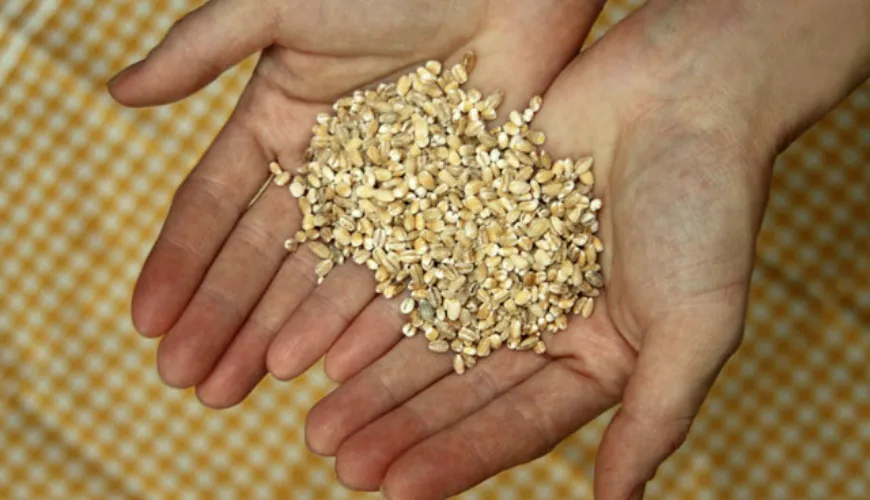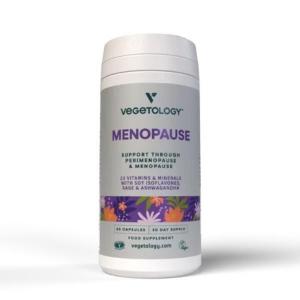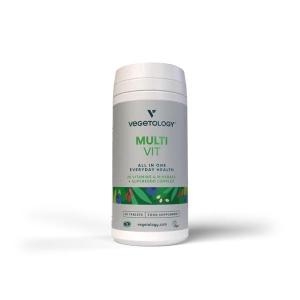
How Caffeine Contributes to Tetany and What You Can Do About It

Caffeine and Tetany - Connections You Should Know About
Caffeine is the most widely used legal stimulant in the world. For many people, a morning cup of coffee, an energy drink, or tea is a daily staple. Yet, its impact on human health is still a topic of discussion. One of the lesser-known but significant topics is the relationship between caffeine and tetany. How exactly does caffeine relate to this unpleasant health condition, and what should you be aware of?
Tetany is a condition of increased excitability of nerve and muscle cells, typically manifested as cramps, tingling of the limbs, a feeling of breathlessness, or an unpleasant internal restlessness. It can be acute or chronic and is often associated with a deficiency of magnesium, calcium, or disturbances in the body's acid-base balance. In some cases, psychology, stress, and lifestyle play an important role - and this is where caffeine comes into play.
How Caffeine Affects the Nervous System
To understand the connection between tetany and caffeine, it is first necessary to realize how caffeine affects our body. Caffeine blocks the action of adenosine, a neurotransmitter that induces a sense of fatigue in the brain. The result is increased alertness, but also increased secretion of stress hormones such as adrenaline and cortisol.
This in itself may not pose a problem if caffeine is consumed in moderation. However, problems arise with excessive intake. Caffeine also promotes the excretion of magnesium in urine and reduces its absorption in the intestines. And because magnesium deficiency is one of the main triggers of tetany, the connection becomes apparent.
Additionally, caffeine increases heart rate and accelerates breathing, which can lead to hyperventilation - another important factor that triggers tetany in predisposed individuals. Rapid breathing reduces carbon dioxide levels in the blood and changes the pH, again increasing neuromuscular excitability.
When Caffeine and Tetany Most Often Meet
In everyday life, the connection between tetany and caffeine often appears in people who live under prolonged stress, have irregular diets, poor hydration, and rely on caffeine as their main source of energy. Add to that a genetic predisposition or latent deficiency in minerals and the risk increases significantly.
Try our natural products
A typical example might be a college student preparing for exams. In an attempt to stay awake and focused, they consume several cups of coffee a day, neglect meals, and suffer from stress. Suddenly, symptoms such as heart palpitations, hand tremors, unpleasant muscle cramps, or a feeling of a "lump" in the throat appear. A visit to the doctor often reveals latent tetany.
Another at-risk group includes shift workers who try to maintain performance with energy drinks or strong coffee. In their case, the risk of tetanic issues is increased not only by caffeine but also by a disrupted daily rhythm and chronic lack of sleep.
How to Recognize That Caffeine Is Worsening Tetany
It is not easy at first glance to determine that caffeine is the main culprit. Many people associate tetany symptoms - such as tingling fingers, calf cramps, a feeling of weakness, or breathlessness - more with fatigue, nervousness, or heart problems. However, if these issues occur after consuming caffeine, it is an important signal.
According to some experts, people with tetany symptoms should significantly reduce caffeine intake or ideally eliminate it altogether. "Minimizing stimulant intake is one of the basic steps in the treatment of tetany," states an expert article published in the journal Czech Neurology and Neurosurgery.
What to Do if You Suspect Caffeine-Related Tetany
If you experience symptoms resembling tetany and know that you regularly consume a large amount of caffeine, it is advisable to take several steps:
- Gradually reduce caffeine intake - sudden withdrawal could lead to withdrawal symptoms such as headaches or increased fatigue.
- Focus on adequate magnesium and calcium intake - ideally from food, or in the form of supplements after consulting a doctor.
- Maintain a regular sleep and rest schedule - regeneration of the nervous system is crucial.
- Avoid stress - techniques such as mindfulness, breathing exercises, or yoga can help reduce tension.
- Stay hydrated - adequate water intake is important for proper nerve and muscle function.
It is important to mention that suspicion of tetany should be followed by a doctor's visit and possible examination, such as EMG (electromyography) to confirm the diagnosis.
Is It Sensible to Drink Coffee If I Have Tetany?
Many people cannot imagine starting their day without a fragrant cup of coffee. But is coffee taboo for everyone with tetany? The answer is not so straightforward. It depends on the severity of the condition, individual tolerance, and overall lifestyle.
Some people with a mild form of tetany can enjoy a small amount of caffeine without significantly worsening their symptoms. Others may find that even one espresso causes unpleasant tingling or anxiety. In such cases, it is better to look for alternatives - such as decaffeinated coffee or herbal teas that promote relaxation and do not burden the nervous system.
It is important to listen to your body. If you feel restlessness, tremors, heart palpitations, or other symptoms after drinking coffee, it is a clear signal for change. No beverage is worth risking your health.
Who Should Be Especially Cautious
People with latent tetany should be cautious about the combination of tetany and caffeine – even if their symptoms are not constant, caffeine can easily trigger them. Similarly, people with anxiety should be careful because caffeine raises stress hormones and exacerbates problems. Pregnant women, due to their increased need for magnesium and calcium, may also react more sensitively to caffeine. And athletes? They lose important minerals through sweat during intense performances, and adding coffee to the mix can spell trouble.
For all these groups, it is advisable to monitor caffeine intake, ensure adequate mineral intake, and focus on stress prevention.
What Alternatives Exist?
For those who want to avoid caffeine but still seek stimulation, there are several options. Popular choices include drinks made from chicory, ginseng, matcha tea (which does contain caffeine but works more gently in combination with L-theanine), or herbal blends with mint, lemon balm, or lavender.
A lifestyle change can have a surprisingly positive effect. Many people who have reduced caffeine and focused on natural energy support—such as quality sleep, a balanced diet, regular exercise, and stress management—report feeling better than ever before.
As we can see, the relationship between caffeine and tetany is complex but also understandable. By consciously working with one's body and lifestyle habits, it is possible to live a fulfilling life even with this sensitivity. It is important to perceive the signals of your body and not be afraid to respect them because health truly begins with everyday small choices.




